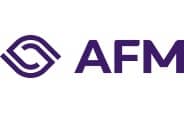
News
11/03/25
Omnibus proposal limits CSRD requirements, AFM maintains approach
The European Commission’s Omnibus proposes a revision of the scope and phasing of CSRD requirements. This has implications for large companies and audit firms. The Dutch Authority for the Financial Markets (AFM) remains committed to reliable and transparent sustainability reporting. AFM will maintain the growth path for large listed companies and audit firms and continue to support the preparation for CSRD reporting through studies and publications.In short
- Omnibus proposal reduces scope and limits sustainability reporting requirements
- AFM stresses importance of transparency and reliability
- Sustainability Reports 2024 are part of CSRD growth path
- Planned studies contribute to learning curve
- AFM calls on companies to remain committed to transparent sustainability reporting
Omnibus proposal reduces scope and limits sustainability reporting requirements
The Omnibus proposal aims to simplify and streamline requirements for sustainability reporting. This is expected to reduce the number of listed companies that fall in the scope of the CSRD – and whose reporting will therefore be subject to supervision by the AFM – from around 160 to just over 100 companies (wave 1). For other companies (wave 2) and listed SMEs (wave 3), implementation will be delayed. The proposal would exclude companies with fewer than 1,000 employees in the first and second waves, as well as allcompanies in the third wave, from the scope of the CSRD entirely. This change will impact companies – and by extension, audit firms – that have already prepared for CSRD compliance.AFM stresses importance of transparency and reliability
The Omnibus proposal reflects a political stance and is yet to be finalised. The AFM believes it is vital that availability of reliable and transparent sustainability reporting is ensured. The AFM welcomes the retention of double materiality for wave 1 and supports the streamlining of reporting requirements. However, the AFM expresses caution regarding the entirely voluntary status of sustainability reporting (VSME standard) for large listed companies with fewer than 1,000 employees. This could result in less information being available to investors and other stakeholders. In addition, eliminating the prospect of ‘reasonable assurance’ hinders progress towards providing stakeholders with more (assurance regarding) reliable information, since auditors are required to conduct less in-depth audit procedures.Sustainability Reports 2024 are part of CSRD growth path
The process of reparing to meet the CSRD requirements is uncertain. The AFM remains committed to a growth path. The sustainability reports for 2024, which major listed companies are publishing during these months, are part of this path.Scheduled studies contribute to learning curve
As announced in the Agenda 2025, the AFM is studying the sustainability reports of large listed companies this year. The focus of these studies will be on the double-materiality analysis and information explaining the impact, opportunities and risks of companies. The AFM is also investigating how audit firms that are allowed to perform statutory audits of PIEs are preparing to provide assurance based on the CSRD, with a specific focus on the quality control system around sustainability assurance and the assurance procedures performed for a limited assurance statement.The results of AFM’s studies will not lead to enforcement measures, except in the event of blatant violations. The AFM opts for a cooperative approach, encouraging firms and auditors to improve their preparations for the CSRD. AFM’s studies and publications contribute to a shared learning curve.
AFM calls on companies to remain committed to transparent sustainability reporting
Despite the fact that the CSRD has not yet been implemented in national legislation and the Omnibus proposal is intended to deliver simplification, the AFM calls on listed companies and audit firms to remain committed to reliable and transparent sustainability reporting. By doing so, companies provide, and also gain, insight into their sustainability risks and opportunities as well as their impact on people and the environment. This enables investors and other stakeholders to make decisions that reflect their sustainability preferences. It is also anticipated that transparency will encourage companies to adopt more sustainable practices.
Tags
Audit firmsContact for this article

Would you like to receive the latest news from AFM?
Subscribe to our newsletter, we will keep you up-to-date.